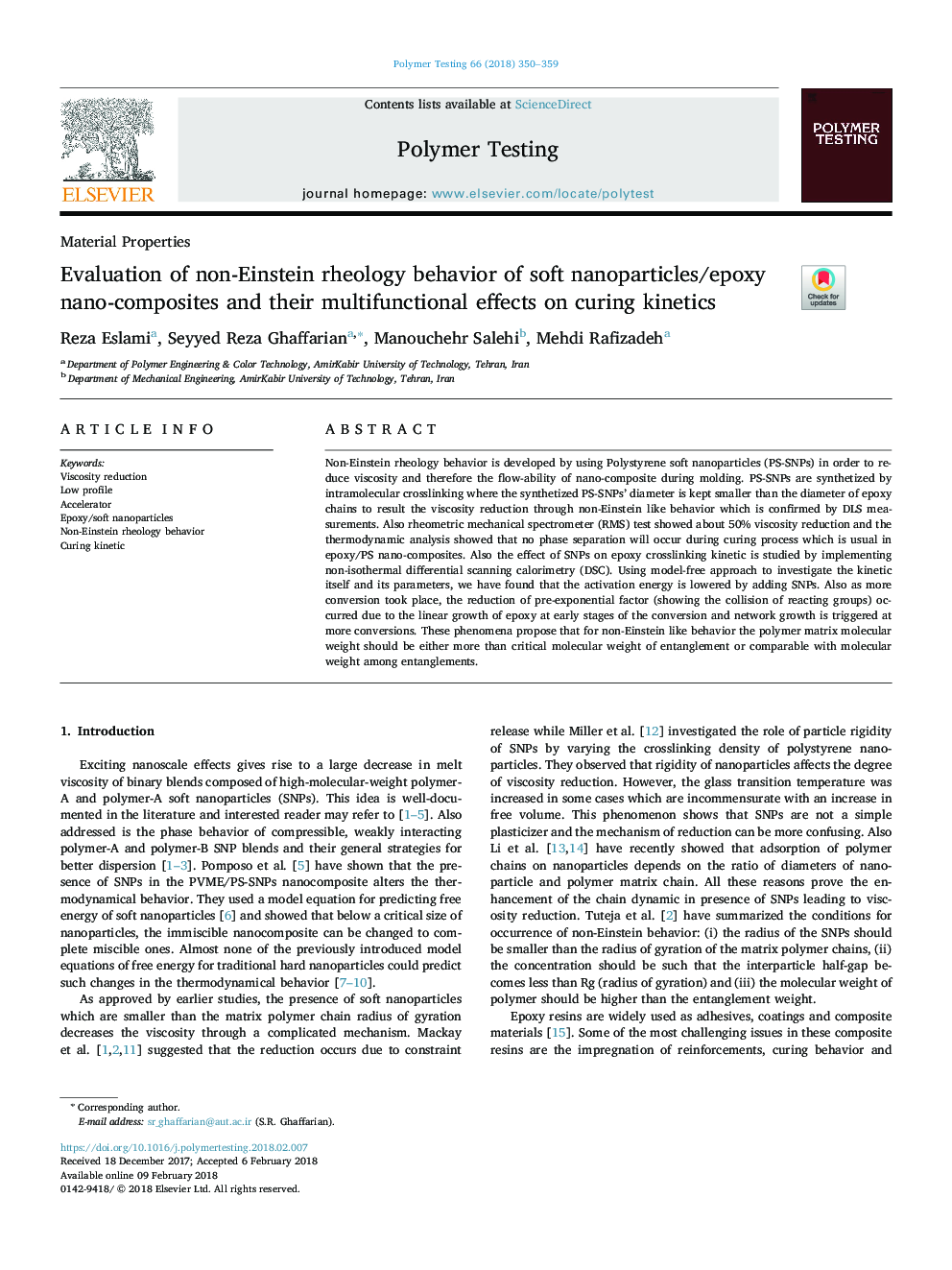| Article ID | Journal | Published Year | Pages | File Type |
|---|---|---|---|---|
| 7825395 | Polymer Testing | 2018 | 10 Pages |
Abstract
Non-Einstein rheology behavior is developed by using Polystyrene soft nanoparticles (PS-SNPs) in order to reduce viscosity and therefore the flow-ability of nano-composite during molding. PS-SNPs are synthetized by intramolecular crosslinking where the synthetized PS-SNPs' diameter is kept smaller than the diameter of epoxy chains to result the viscosity reduction through non-Einstein like behavior which is confirmed by DLS measurements. Also rheometric mechanical spectrometer (RMS) test showed about 50% viscosity reduction and the thermodynamic analysis showed that no phase separation will occur during curing process which is usual in epoxy/PS nano-composites. Also the effect of SNPs on epoxy crosslinking kinetic is studied by implementing non-isothermal differential scanning calorimetry (DSC). Using model-free approach to investigate the kinetic itself and its parameters, we have found that the activation energy is lowered by adding SNPs. Also as more conversion took place, the reduction of pre-exponential factor (showing the collision of reacting groups) occurred due to the linear growth of epoxy at early stages of the conversion and network growth is triggered at more conversions. These phenomena propose that for non-Einstein like behavior the polymer matrix molecular weight should be either more than critical molecular weight of entanglement or comparable with molecular weight among entanglements.
Related Topics
Physical Sciences and Engineering
Chemistry
Organic Chemistry
Authors
Reza Eslami, Seyyed Reza Ghaffarian, Manouchehr Salehi, Mehdi Rafizadeh,
